
Ahmed Kharrufa
Reader
I am a Reader in human-computer interaction at Open Lab, Newcastle University. I lead the educational technology research at Open Lab and my research in this area focuses on the design, development, implementation, and evaluation of processes and technologies in support of learning, school-community engagement, and cultural and language learning. My research and interest in the area of interaction design ranges from improving people’s experiences of interacting with digital surfaces, spaces and the IoTs to rethinking the design, and the appropriation, of online platforms and services.
Teaching wise, I am the Degree Programme Director for the Software Engineering Degree Apprenticeship, and the module leader for three human-computer interaction related modules for undergraduate and postgraduate degrees. I am also a Fellow of the Higher Education Academy.
My background is in Electronics and Communication Engineering (BSc and MSc) with a PhD in Computing Science. Before joining academia full time in 2016, I worked in the software industry for almost two decades as a developer, a development manager, a director and an entrepreneur starting my own educational technology software company (Reflective Thinking) in 2011.
I founded Reflective Thinking to realize the impact of my PhD by commercializing ‘Digital Mysteries’ (an app platform for collaborative learning and thinking skills development) releasing 30 iPad apps covering different educational topics and different age groups with more than 500,000 downloads from over 60 countries. Under the theme of education, I have done work on computer-supported collaborative learning, reflective and metacognitive thinking, school-community engagement, coding education, mobile and place-based learning, and the evaluation of educational technologies.
When not doing research work at the university, I am leading the development of the learning engine and the application of AI at Kinnu, an educational technology start-up developing Kinnu as a learning science-based app to help people acquire and retain new knowledge.
PhD supervision and examination experience
As a main supervisor, I have supervised four PhD students to completion (up to 2020), and I have five other PhD students researching topics in educational technology and interaction design.
I have acted as an external examiner for Sydney University, and internal examiner at Newcastle University.
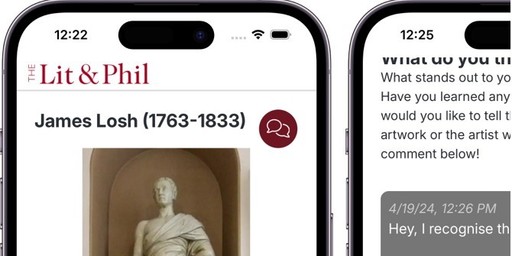
Discover the Treasures of Lit & Phil
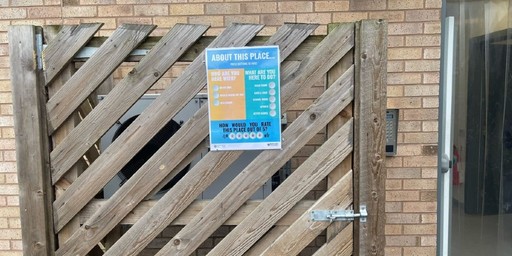
Digital Approaches for Gathering Student Opinions in School

ENACT: Learn Language Through Culture
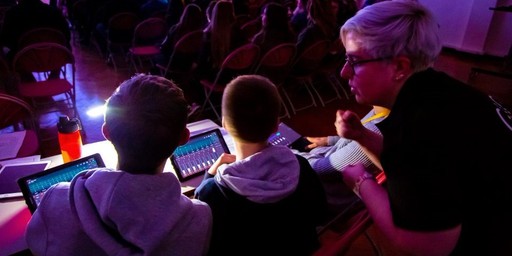
Co-Teaching as a Form of Co-Design for Educational Technology
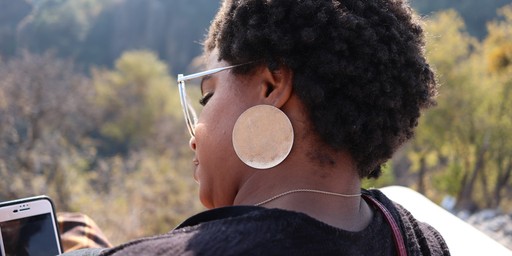
Designing a Social Media-Based Peer Support System
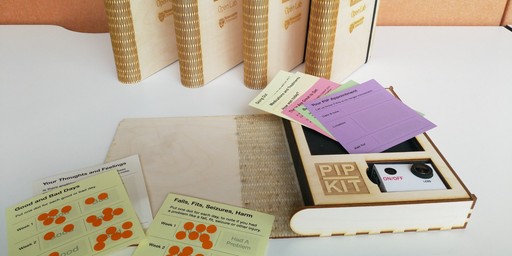
PIP Kit: Using lifelogging to support disability benefit claimants
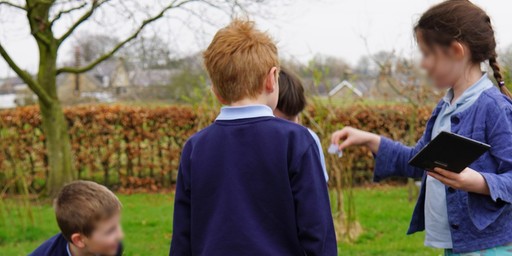
Configuring a framework for Project-Based Mobile Learning

Unplatformed Design: Appropriating social media for coordinated participation

WhatFutures: engaging youth volunteers using WhatsApp
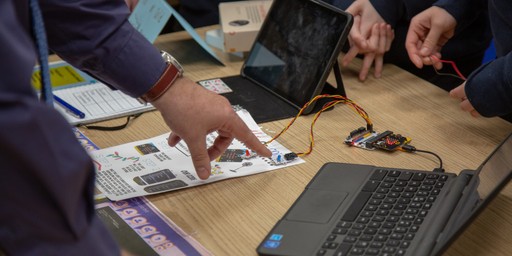
HOPE for computing education: Supporting university-school partnerships
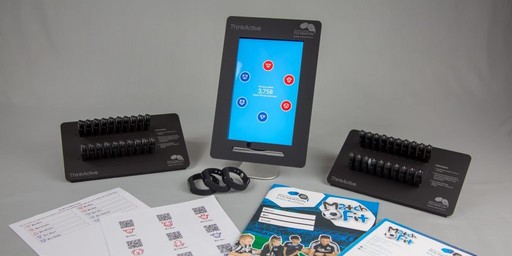
ThinkActive: keeping children fit using low-cost technology in a fun and engaging way
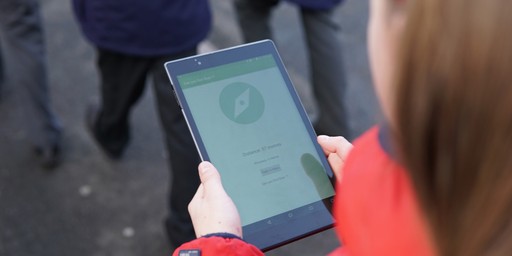
OurPlace: an app for learning about people and places
2026
LLMs Integration in Software Engineering Team Projects: Roles, Impact, and a Pedagogical Design Space for AI Tools in Computing Education
2026 – ACM Transactions on Computing Education
Quiz Traveller: A Crowdsourced Educational Game on Chat-Based Interactive Live-Streaming Platforms
2026 – 10th Annual International GamiFIN Conference 2026
2025
Migrants’ digital skills development: Engaging with and creating digital cultural activities on the ENACT web app
2025 – ReCALL
Beyond Bridging Divides: Examining the Goals of Digital Inclusion Practice in Post-Digital Societies
2025 – CHI Conference on Human Factors in Computing Systems (CHI '25)
2024
Generative AI Assistants in Software Development Education: A vision for integrating Generative AI into educational practice, not instinctively defending against it
2024 – IEEE Software
Hostile Systems: A Taxonomy of Harms Articulated by Citizens Living with Socio-Economic Deprivation
2024 – CHI '24: Proceedings of the CHI Conference on Human Factors in Computing Systems
The Realities of Evaluating Educational Technology in School Settings
2024 – ACM Transactions on Computer-Human Interaction
Developing a method for obtaining pupil insight for Building in Use reviews
2024 –
Precarious Experiences: Citizens' Frustrations, Anxieties and Burdens of an Online Welfare Benefit System
2024 – arXiv
The Potential and Implications of Generative AI on HCI Education
2024 – EduCHI '24: 6th Annual Symposium on HCI Education
Cultural tasks for ESOL teaching and learning: The ENACT web app
2024 – ESOL SIG
Using Digital Technologies to reveal Student Views of Outdoor School Space: Methodological and Ethical Possibilities and Uncertainties
2024 – European Conference on Educational Research ECER'24
Using digital technologies to reveal student views of outdoor school space: methodological and ethical possibilities and uncertainties
2024 – British Educational Research Association conference (BERA'24)
Thematic Analysis of Self-Regulation Narratives in Textual Posts by Informal Programming Learners on Social Media
2024 – 2024 IEEE Symposium on Visual Languages and Human-Centric Computing (VL/HCC)
2023
Sketching dialogue: incorporating sketching in empathetic semi-Structured interviews for human-computer interaction research
2023 – Behaviour and Information Technology
Exploring the Support for Self-Regulation in Adult Online Informal Programming Learning: A Scoping Review
2023 – ITiCSE 2023: Proceedings of the 2023 Conference on Innovation and Technology in Computer Science Education V. 1
Editorial: Teaching and learning human–computer interaction (HCI): current and emerging practices
2023 – Frontiers in Computer Science
Gender & Racism: Considerations for Digital Learning Among Young Refugees and Asylum Seekers
2023 – Human-Computer Interaction – INTERACT 2023
2022
Participatory Design Goes to School: Co-Teaching as a Form of Co-Design for Educational Technology
2022 – CHI Conference on Human Factors in Computing Systems (CHI ’22)
Supporting Non-Expert Users in Authoring Tasks for Learning Language and Culture: Evaluation Study
2022 – International Journal of Computer-Assisted Language Learning and Teaching
Cultural Tasks for Language Learning and Teaching: The ENACT App.
2022 – FLTMAG
2021
‘Social media is their space’: student and teacher use and perception of features of social media in language education
2021 – Behaviour & Information Technology
HCI - H is also for Hazard: Using HAZOP to Identify Undesirable Consequences in Socio-Technical Systems
2021 – ACM SIGCAS Conference on Computing and Sustainable Societies 2021 (ACM COMPASS '21)
Virtual exchange facilitated by interactive, digital, cultural artefacts: communities, languages, and activities app (ENACT)
2021 – Virtual exchange: towards digital equity in internationalisation
The ENACT web app: Learning language through culture
2021 – Babel The Language Magazine
2020
We are the Greatest Showmen: Configuring a Framework for Project-Based Mobile Learning
2020 – CHI '20: Proceedings of the 2020 CHI Conference on Human Factors in Computing Systems
PIP Kit: An Exploratory Investigation into using Lifelogging to support Disability Benefit Claimants
2020 – CHI '20: Proceedings of the 2020 CHI Conference on Human Factors in Computing Systems
Unplatformed Design: A Model for Appropriating Social Media Technologies for Coordinated Participation
2020 – CHI '20: Proceedings of the 2020 CHI Conference on Human Factors in Computing Systems
Design Studios for K-12 Computing Education
2020 – 51st ACM Technical Symposium on Computer Science
Cooking as a Language Learning task.
2020 – TESL-EJ
Learning and Education in HCI: A Reflection on the SIG at CHI 2019
2020 – Interactions
Cooking as a language learning task: On the internet
2020 – TESL-EJ
2019
Group tagging: Using video tagging to facilitate reflection on small group activities
2019 – British Journal of Educational Technology
Exploring e-mentoring: co-designing & un-platforming
2019 – Behaviour & Information Technology
HOPE for Computing Education: Towards the Infrastructuring of Support for University-School Partnerships
2019 – CHI '19: Proceedings of the 2019 CHI Conference on Human Factors in Computing Systems
WhatFutures: Designing Large-Scale Engagements on WhatsApp
2019 – 2019 CHI Conference on Human Factors in Computing Systems
The Linguacuisine Project: A Cooking-based Language Learning Application
2019 – The Eurocall Review
2018
A Unified Model for User Identification on Multi-Touch Surfaces: A Survey and Meta-Analysis
2018 – ACM Transactions on Computer-Human Interaction
ThinkActive: Designing for pseudonymous activity tracking in the classroom
2018 – CHI '18: Proceedings of the 2018 CHI Conference on Human Factors in Computing Systems
ParkLearn: Creating, sharing and engaging with place-based activities for seamless mobile learning
2018 – Proceedings of the 20th International Conference on Human-Computer Interaction with Mobile Devices and Services Adjunct (MobileHCI '18)
Supporting the smart teacher: an agenda for the use of embedded sensing in novel learning spaces
2018 – Smart Learning Environments
2017
Group Spinner: Recognizing & Visualizing Learning in the Classroom for Reflection, Communication & Planning
2017 – Conference on Human Factors in Computing Systems
Students’ Perceptions of Learning Processes as Co-Authors of Digital Tabletop Activities
2017 – 31st International BCS Human Computer Interaction Conference (HCI 2017)
Exploring Public Places as Infrastructures for Civic M-Learning
2017 – 8th International Conference on Communities and Technologies
Remix Portal: Connecting Classrooms with Local Music Communities
2017 – 8th International Conference on Communities and Technologies (C&T '17)
2016
Expressy: Using a Wrist-Worn Inertial Measurement Unit to Add Expressiveness to Touch-Based Interactions
2016 – ACM Conference on Human Factors in Computing Systems 2016
SOLE meets MOOC: Designing Infrastructure for Online Self-Organised Learning with a Social Mission
2016 – 2016 ACM Conference on Designing Interactive Systems (DIS '16)
Making L2 learners' reasoning skills visible: The potential of Computer Supported Collaborative Learning Environments
2016 – Thinking Skills and Creativity
Virtual.Cultural.Collaboration - Mobile phones, video technology, and cross-cultural learning
2016 – Proceedings of the 18th International Conference on Human-Computer Interaction with Mobile Devices and Services, MobileHCI 2016
2015
Evaluating Digital Tabletop Collaborative Writing in the Classroom
2015 – Human-Computer Interaction - INTERACT 2015: 15th IFIP TC 13 International Conference
Using IMUs to identify supervisors on touch devices.
2015 – Human-Computer Interaction – INTERACT 2015
Comparing Fatigue When Using Large Horizontal and Vertical Multi-touch Interaction Displays.
2015 – Human-Computer Interaction–INTERACT 2015
2014
Enhancing language learning around the digital tabletop: do actions speak louder than words?
2014 – Innovative Language Teaching at University: Enhancing student performance
Collaborative enquiry through the tabletop for second/foreign language learners
2014 – EUROCALL 2014: CALL Design: Principles and Practice
Re-thinking thinking: students’ perceptions of learning processes as co-authors of digital tabletop applications
2014 –
2013
Designing for Reflection: A Case Study with Digital Tabletops and Digital Mysteries
2013 – Cases on E-Learning Management: Development and Implementation
Brains on the table revisited: Digitising innovative formative assessment
2013 – Assessment in Education: Principles, Policy & Practice
Tables in the Wild: Lessons Learned from a Large-Scale Multi-Tabletop Deployment
2013 – CHI 2013: Proceedings of the SIGCHI Conference on Human Factors in Computing Systems
Learning extended writing: designing for children's collaboration
2013 – 12th International Conference on Interaction Design and Children (IDC)
Extending tabletop application design to the classroom.
2013 – ACM international conference on Interactive tabletops and surfaces
2012
Magic Land: the design and evaluation of an interactive tabletop supporting therapeutic play with children
2012 – DIS 2012: Proceedings of the Designing Interactive Systems Conference
Collaborative Strategic Reading on Multi-Touch and Multi-User Digital Tabletop Displays
2012 – EUROCALL
2010
Exploring the Requirements of Tabletop Interfaces for Education
2010 – International Journal of Learning Technology
Learning Through Reflection at the Tabletop: A Case Study with Digital Mysteries
2010 – World Conference on Educational Multimedia, Hypermedia and Telecommunications
Digital Mysteries: Designing for Learning at the Tabletop
2010 – ACM International Conference on Interactive Tabletops and Surfaces
Learning Through Reflection at the Tabletop: A Case Study with Digital Mysteries
2010 – EdMedia: World Conference on Educational Media and Technology
Exploring the requirements of tabletop interfaces for education.
2010 – International Journal of Learning Technology
2009
TangiSoft: A Tangible Direct-Touch Tabletop Keyboard
2009 – World Conference on Educational Multimedia, Hypermedia and Telecommunications (EDMEDIA 2009)
Digital Mysteries: Designing for Learning at the Tabletop
2009 – School of Computing Science Technical Report Series
TangiSoft: A Tangible Direct-Touch Tabletop Keyboard
2009 – EdMedia: World Conference on Educational Media and Technology
2008
Attribute gates
2008 – 21st Annual ACM Symposium on User Interface Software and Technology (UIST)
Attribute Gates
2008 – ACM symposium on User interface software and technology (UIST '08)